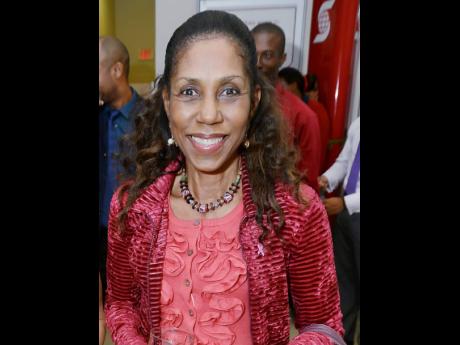Hope Pastures win over JPS cast as David against Goliath
Last Friday’s Court of Appeal ruling that the Jamaica Public Service Company (JPS) was under a statutory obligation to supply electricity by underground cables to the houses in Hope Pastures has been hailed by a resident, Dr Jennifer Mamby Alexander, as not only a victory for the community but a win for the “common man” who refused to be “bullied” by a powerful monopoly.
At least 95 residents of Hope Pastures have been locked in a prolonged court battle with the JPS.
In 2018, the residents took the matter to the appeal court after Chief Justice Bryan Sykes ruled that JPS could not be compelled to provide electricity to the community through underground cables at its expense.
However, Sykes’ ruling was overturned on Friday by the Court of Appeal.
“What we have gone through with the Jamaica Public Service, thank God for the Court of Appeal,” said Mamby Alexander, breathing a sigh of relief.
Mamby Alexander, one of the chief claimants, said that many people told her she was “mad” to get into a legal tussle with JPS. But she urges others faced with similar challenges not to be cowed down, framing Hope Pastures’ fight with JPS as a biblical battle of David and Goliath.
She told The Gleaner that during the case, the JPS sought to convince the court that the underground electrical system was not safe.
However, Mamby Alexander argued that the underground system was not affected by the powerful Hurricane Gilbert in 1988 or other weather systems that had impacted the country over decades.
“When the hurricane was over, we were one of the first communities to get back light in Hope Pastures. There was no damage,” she said.
According to Mamby Alexander, at present, about 55 per cent of the houses in Hope Pastures are still on the underground electrical system “that is struggling and needs maintenance”.
She argued that JPS produced a death certificate on the underground system.
RESIDENTS’ CHALLENGE
However, the residents reportedly challenged JPS that they could prove that the underground system was working by hiring consultants who once worked with the company to certify that the facility works. JPS blocked it, she said.
“They said ‘no’ because they knew that if that was done, it would have proven that the underground system was working.
“Now, we have to go back to the Supreme Court to prove the viability of the underground system,” she said.
The Gleaner sought comment from the light and power company, which offered a terse response.
“JPS has received the court ruling handed down October 23 by the Court of Appeal pertaining to the electricity distribution network in Hope Pastures. The company will be reviewing the judgment with a view to assessing its next course of action,” the utility company said, insisting that there would be no further comment.
Mamby Alexander said that in 2014, the JPS decided to carry out a pilot project to provide electricity by connecting houses to an overhead electricity system. She claimed that the residents were given three months to accept the new system with the condition that they had to pay for the installation and have it approved by the Government Electrical Inspectorate.
Failure to come on board, said Mamby Alexander, would result in the disconnection of service. Some persons buckled.
“People panicked. Nobody wants to have their service disconnected,” Mamby Alexander said.
When the community experienced a power cut in October 2015, Mamby Alexander claimed that JPS said it would not fix the underground system but allegedly foisted the overhead system on the community.
“My mother looks out at age 98 – it was five years ago – and she said, ‘Where those overhead cables come from? That’s not what I paid for.’”
Mamby Alexander said her elderly mother said: “‘We are going to fight this.’”
Dr Alfred Sangster, a resident of Hope Pastures, told The Gleaner that he had voted for overhead electricity when the JPS’s pilot phase was to be implemented.
He said that based on observation, an increasing number of residents in the community have accepted the new installation.
Professor Brendan Bain, member of the Hope Pastures Citizens’ Association, said that he hoped that the matter “continues to proceed smoothly in favour of the group that has been negotiating”.
Bain said: “The section where I live is not directly affected, but I empathise with the group, and I am pleased with the way that the case is proceeding.”

